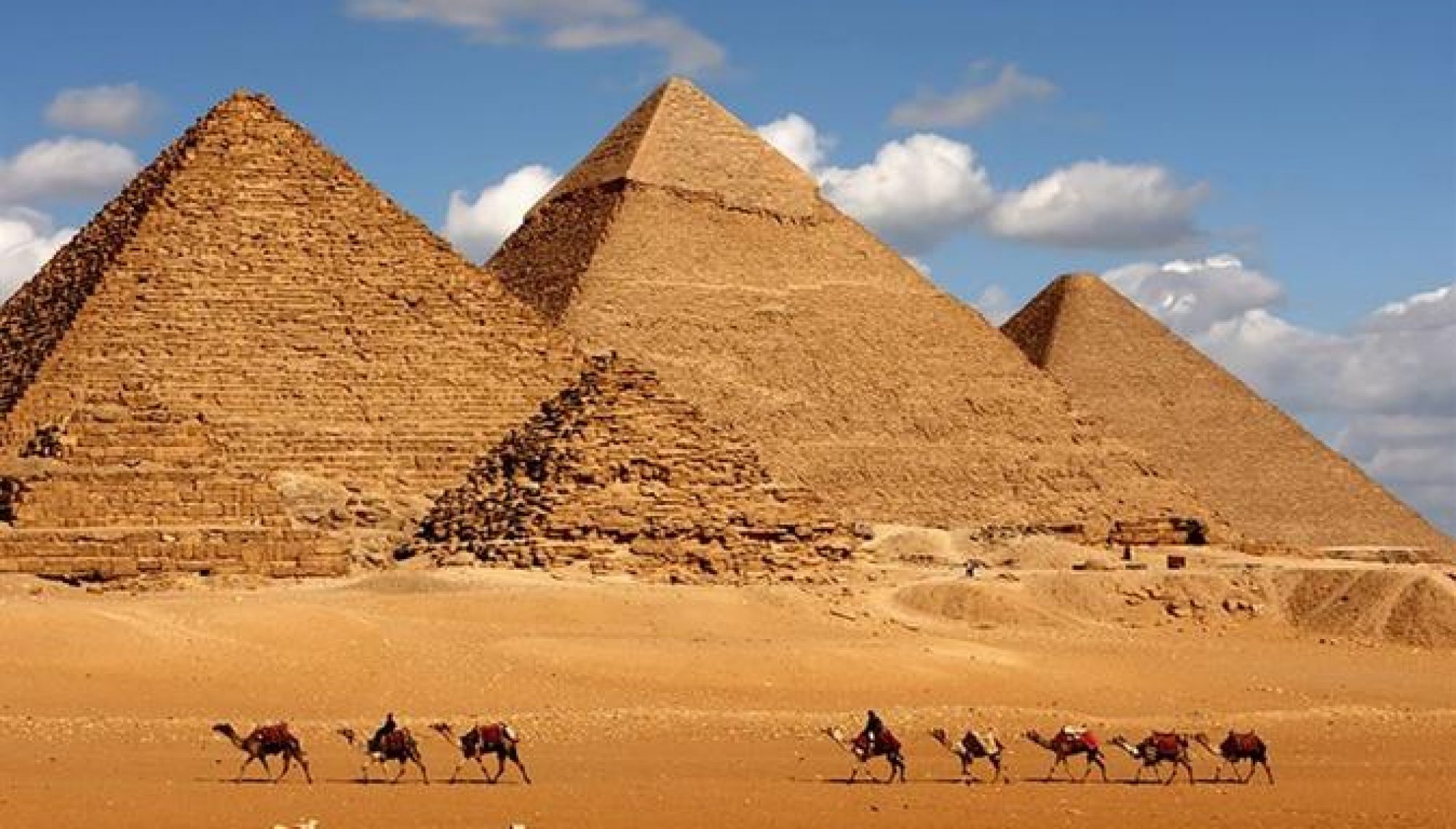We started our day with an early morning game drive. Kilimanjaro was clear of clouds. We went back to the lions. The lioness had made another kill. She is definitely teaching her cubs to hunt. One of the cubs was interested and the other was not. We also saw lots of elephants.
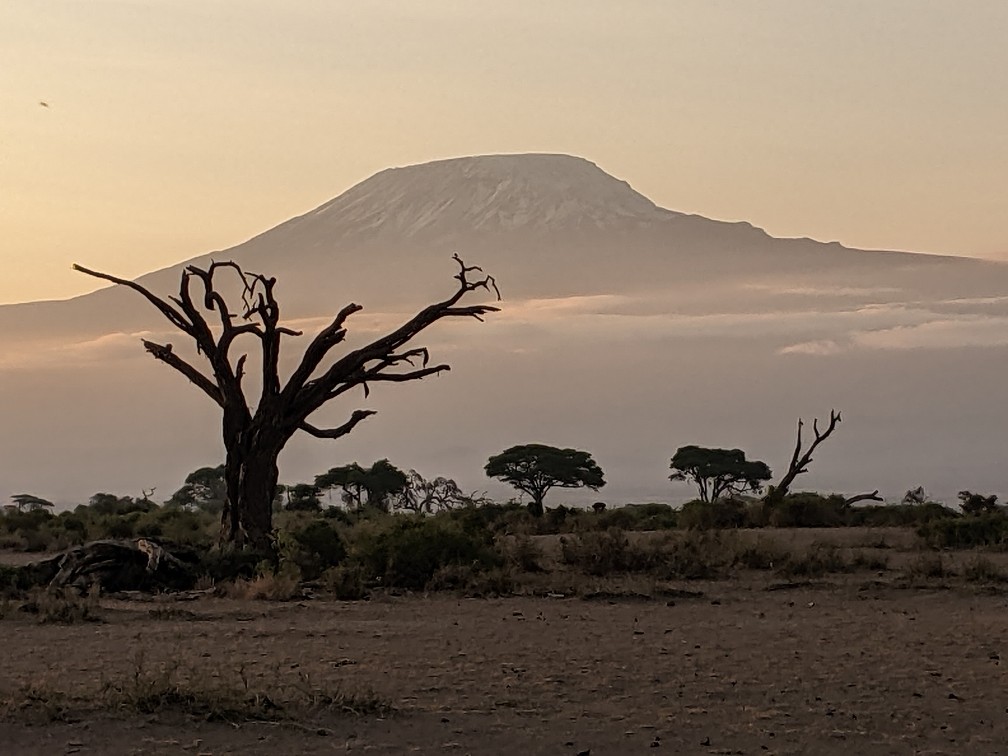
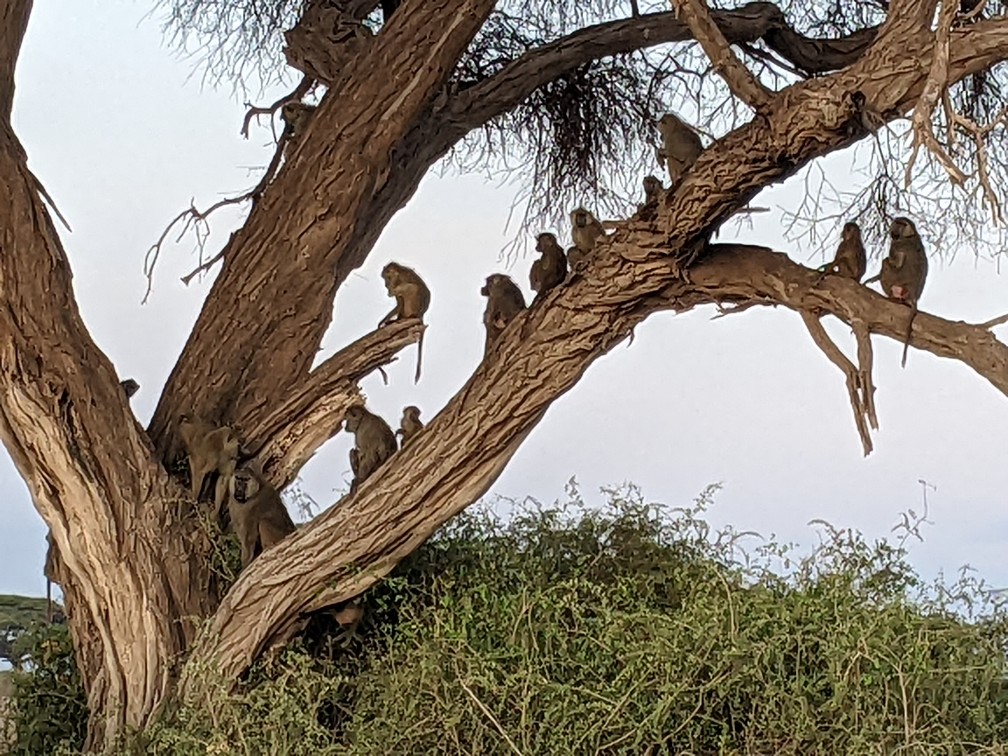
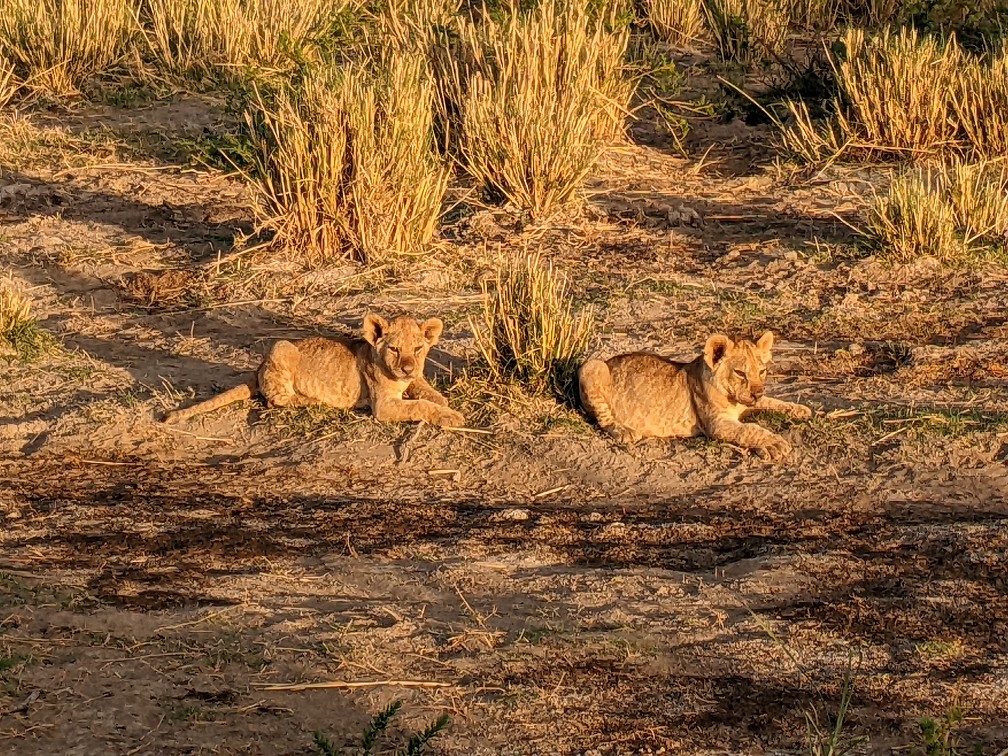
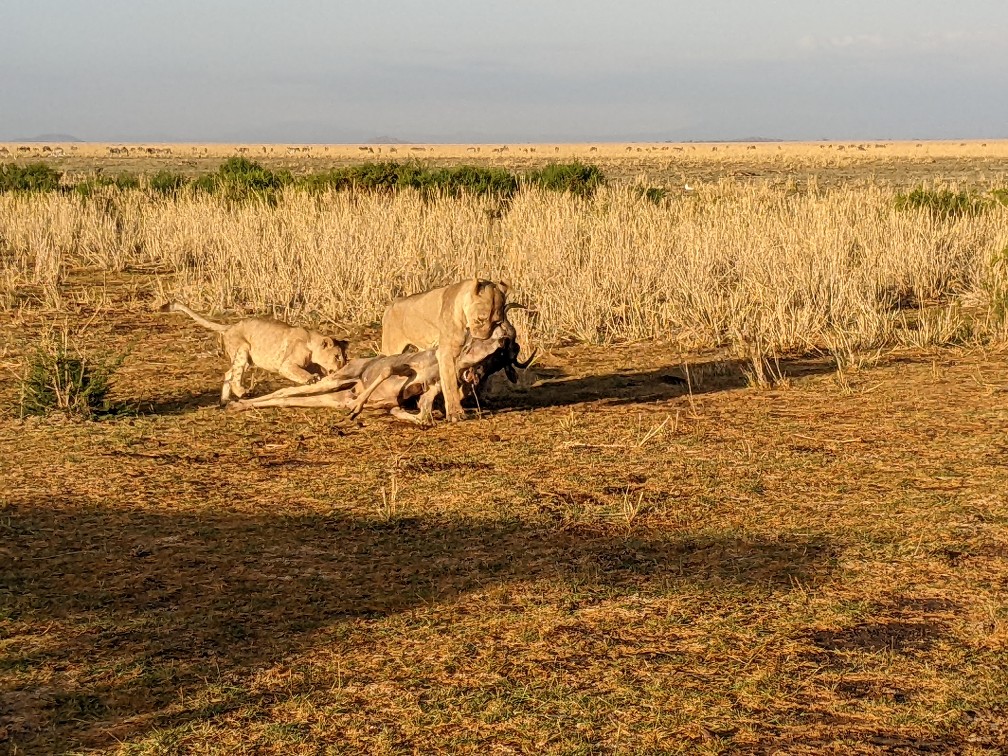
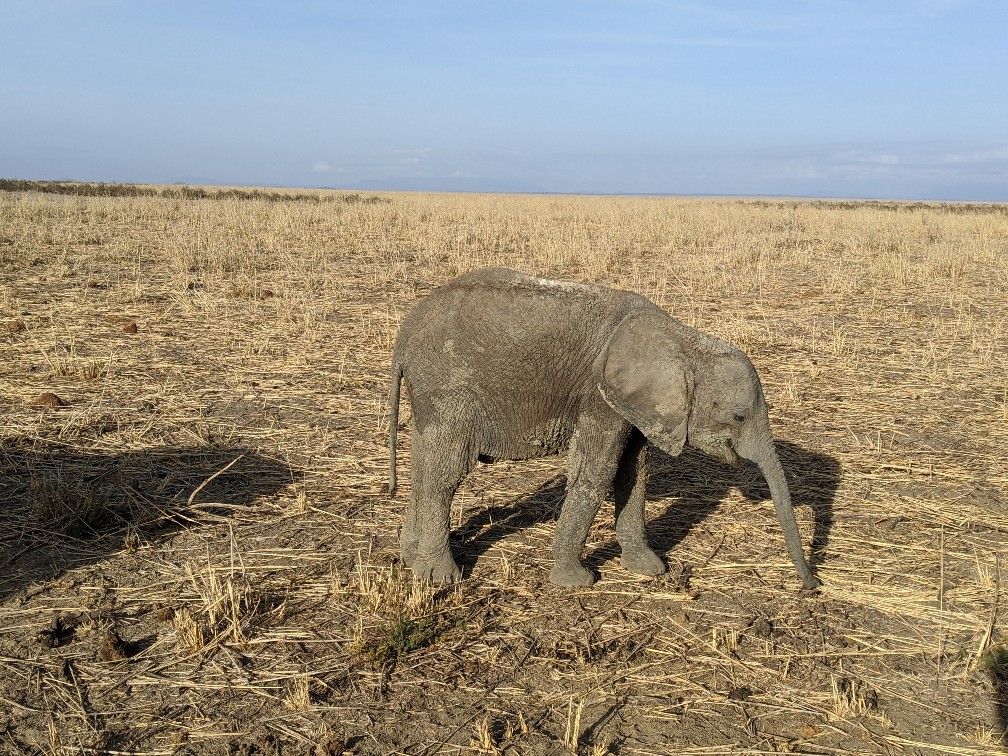
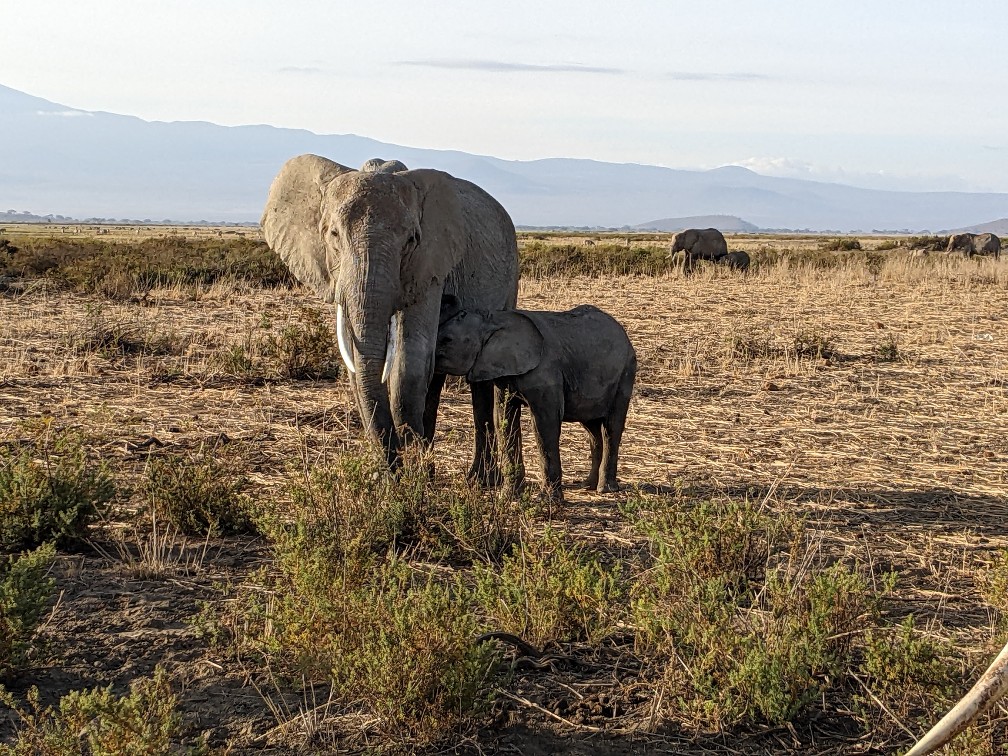
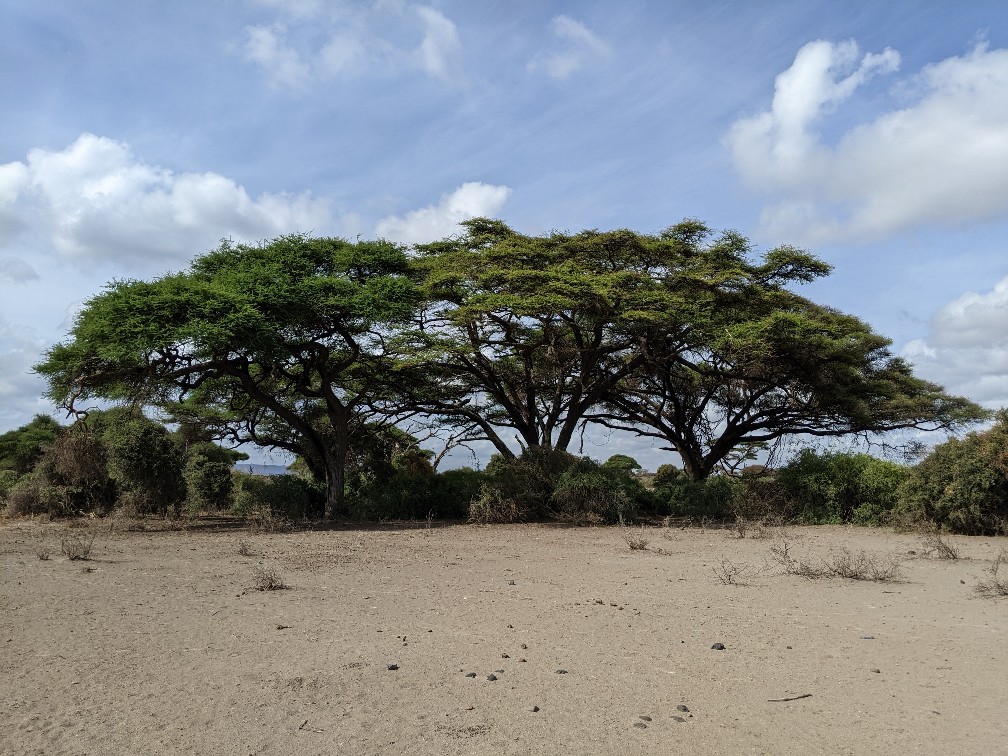
At around 8am, we pulled up to an acacia tree and the camp had set up a dining area for our breakfast. We had a lovely breakfast in the bush. Here are some pictures
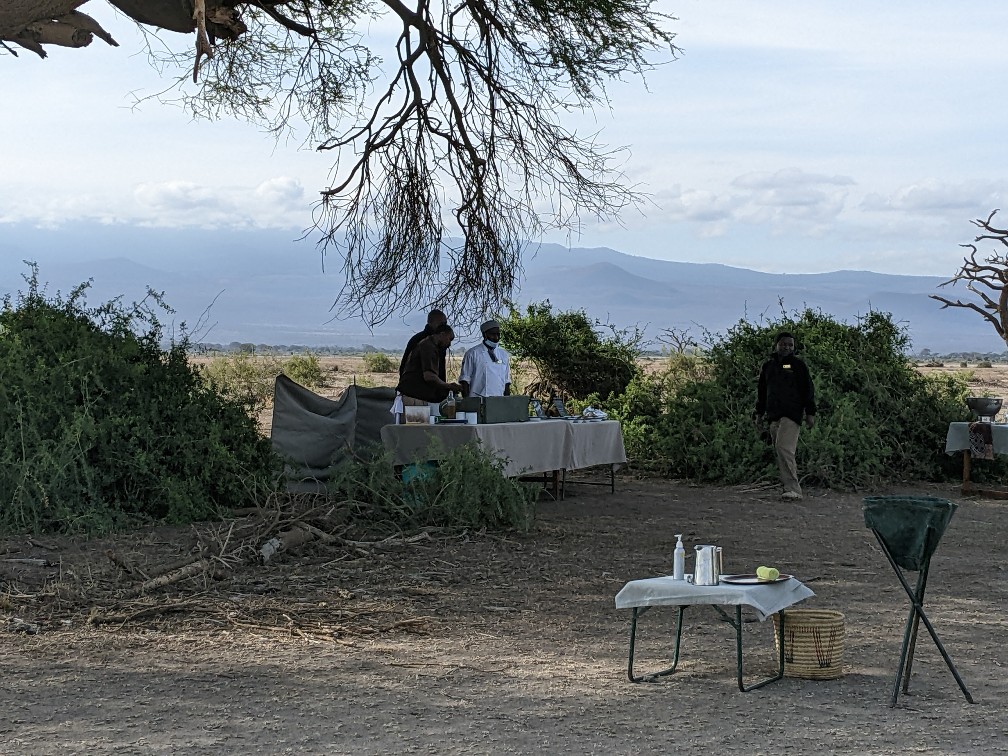
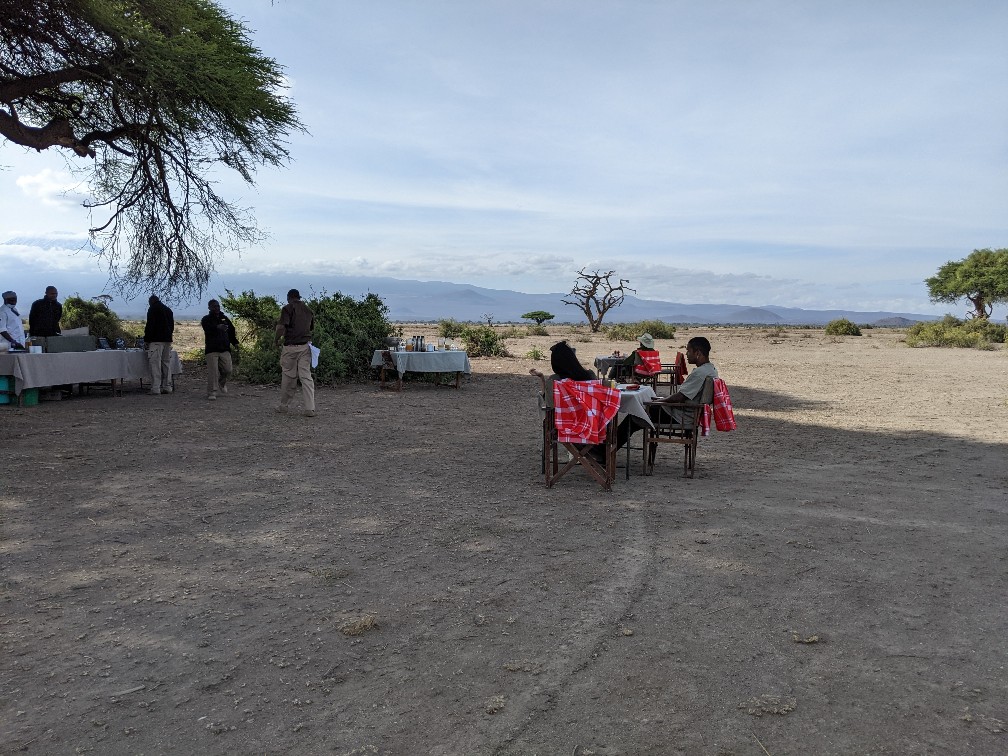
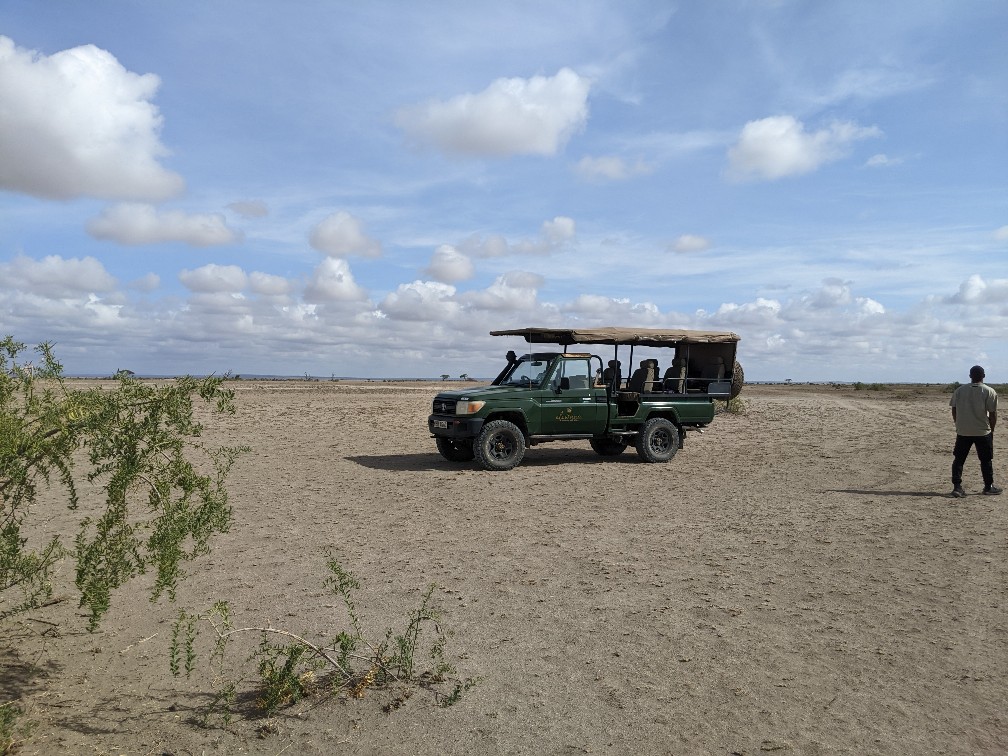
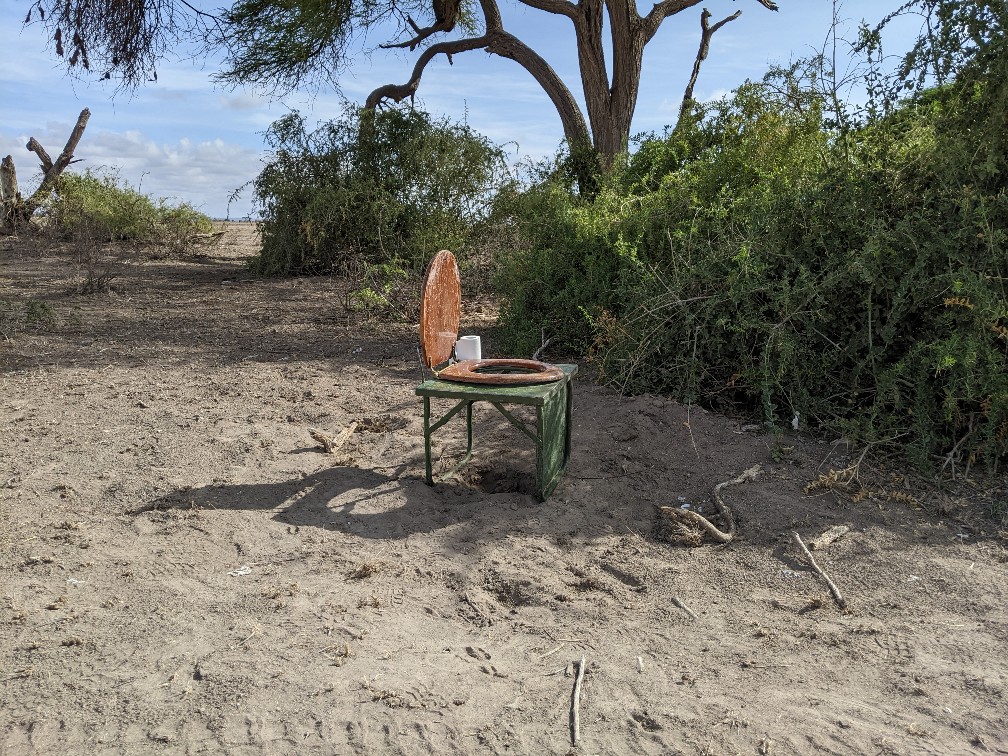
Next stop was a Masai village. There we were greeted by the chief’s son and a que of ladies singing.
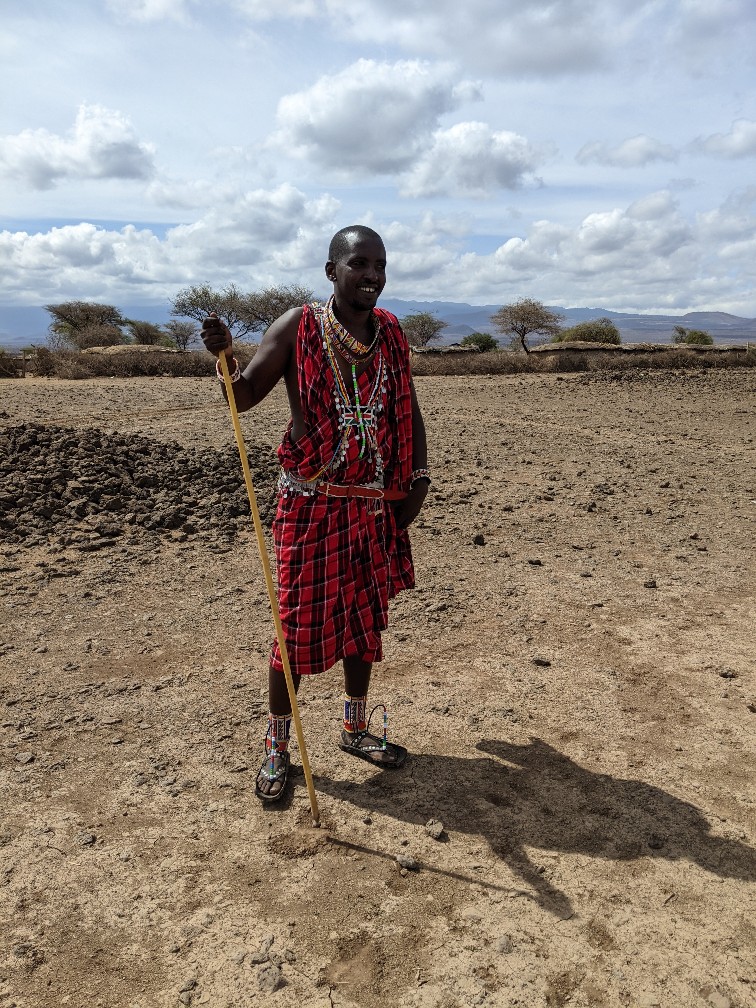
The chief’s son provided a blessing for us and his people. They also showed us how the men start a fire by rubbing to sticks together. They do that in the morning and in the evening. Then the ladies come to get some fire to cook with.
The village housed 4 extended families whose houses were arranged in a circle. There were four gates in the village with one family in each “quarter”.
Masai are herders and do not farm. They only eat meat, no vegetables (my kind of people). The men herd the cows and the women herd the goats and sheep. The men wear red to protect themselves and scare away predators from their cows.
Each mud hut contains two sleeping areas and a cooking area. The parents sleep in one sleeping area and the children sleep in the other. It was much too dark to take pictures inside the hut.
There were some young children around but the older children were at a nearby school that had been built by the camp.
Finally we were taken to “shop.” I bought an overpriced bracelet. While I was shopping, Rick was sitting under a tree. A man who spoke limited English was admiring Rick’s watch ($20 at Walmart). He was looking at it and then touching it and finally Rick asked if he wanted it. He said yes and Rick happily/reluctantly gave up the watch. (Rick ultimately suggested he had been culled from the group, looked like a weak target and was set upon by the Masai warrior in this case, similar to the lioness and the zebra.
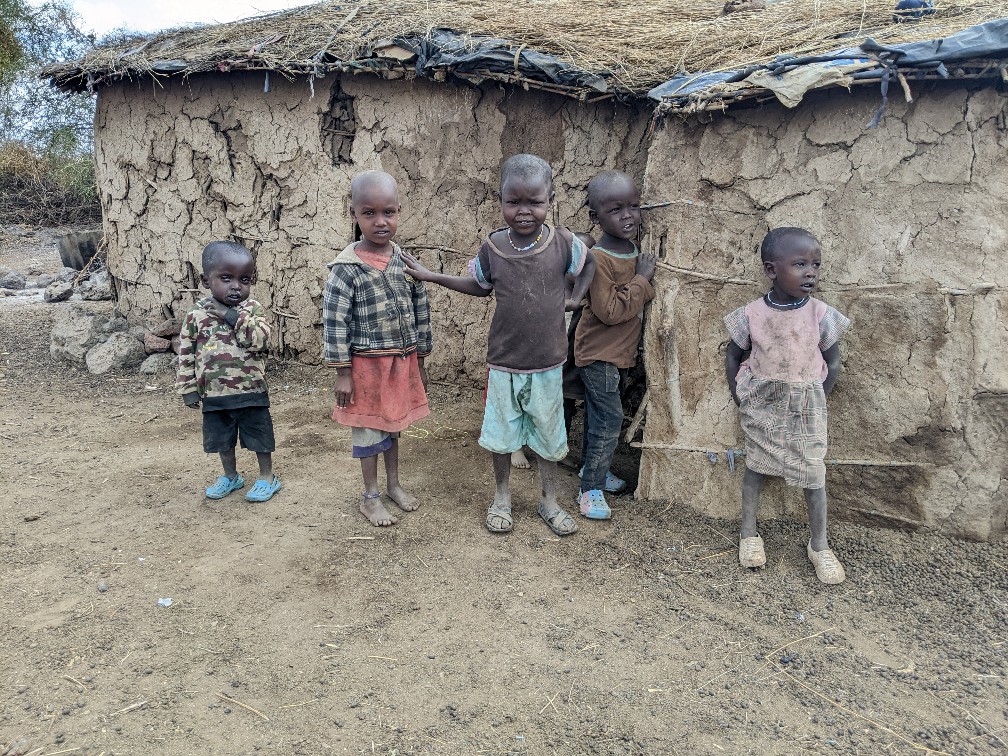
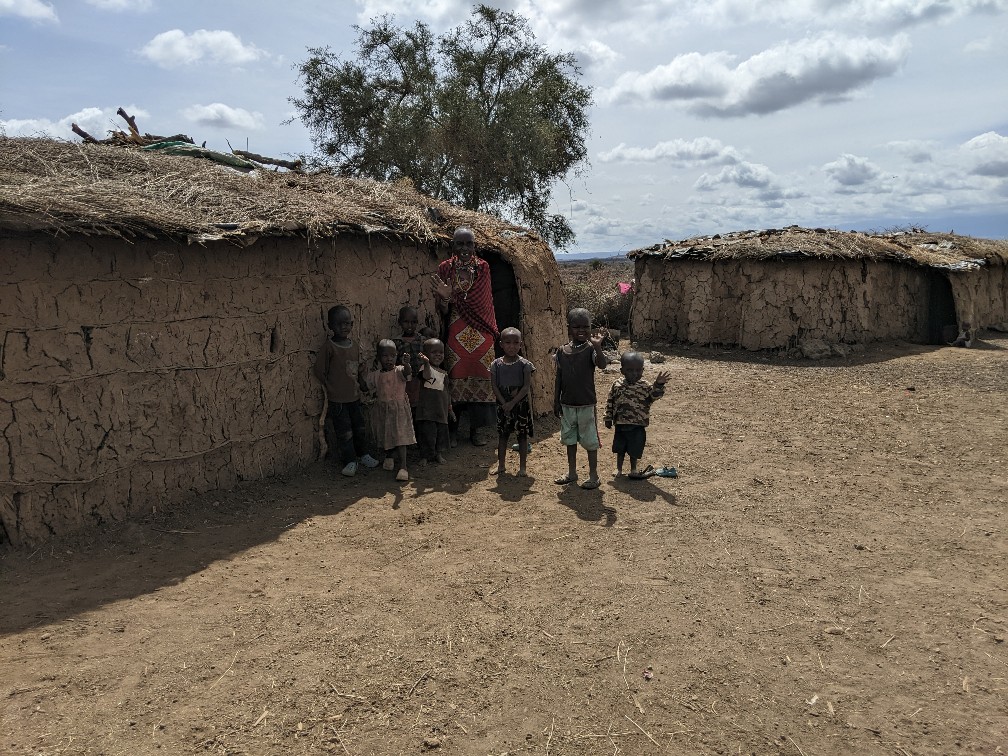
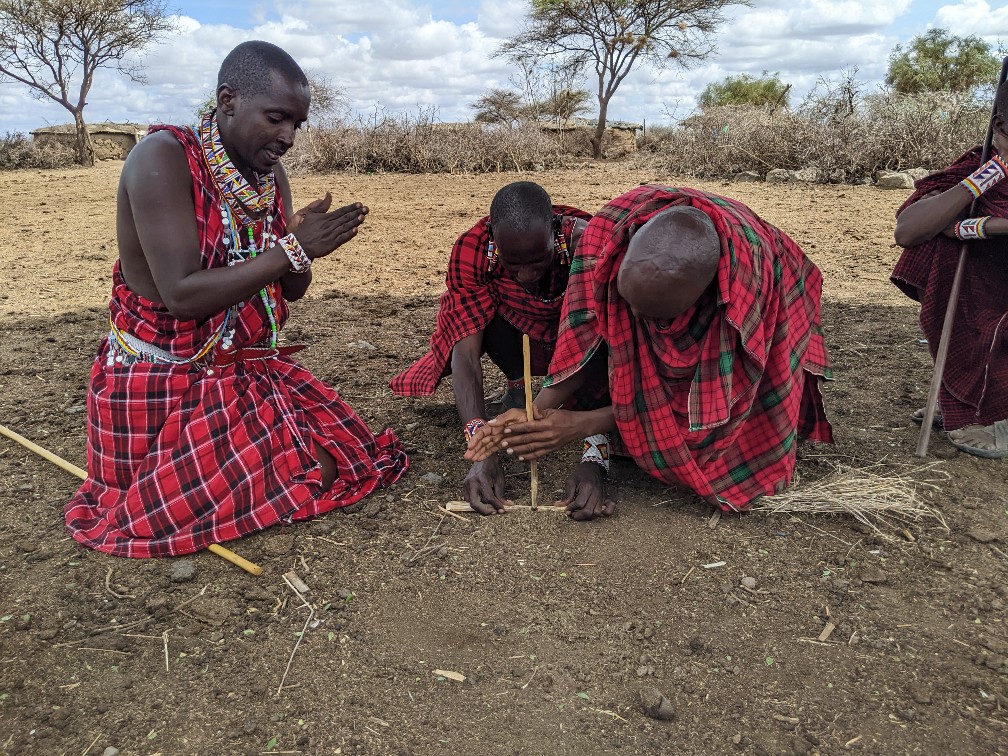
While talking to the chief’s son we learned that the Masai practice polygamy, but it is quite expensive for a man to have multiple wives. The price to the groom for each wife is 15 cows. (Our guide later told us that throughout Kenya having a lot of children is a sign of prosperity even if it means you have no money.) The parents arrange the first wife and then the man can select subsequent wives. He also told us that the drought had been difficult on them. The village started the year with 208 cows, now they have 34. They are very good at sharing the resources so our $20 fee to visit the village would be spread across the village. The elephants had broken the pump for the well so the women had to walk 1-2 miles to get water. It wasn’t clear when the pump would get fixed.
We said goodbye to the Masai and went back to the camp for lunch.
Later that afternoon we went out for another game drive. We were trying to find a cheetah, but no luck. We found a cape buffalo, some hippos and an oryx, in addition to the usual suspects.
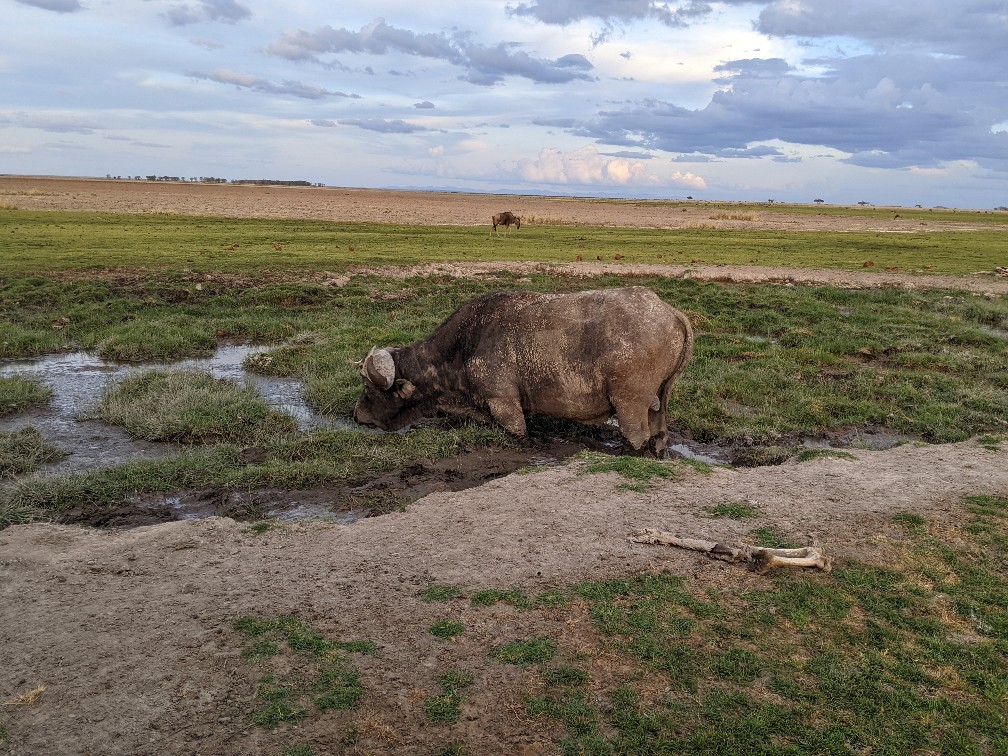
Joseph found a nice spot under an acacia tree and we had cocktails.
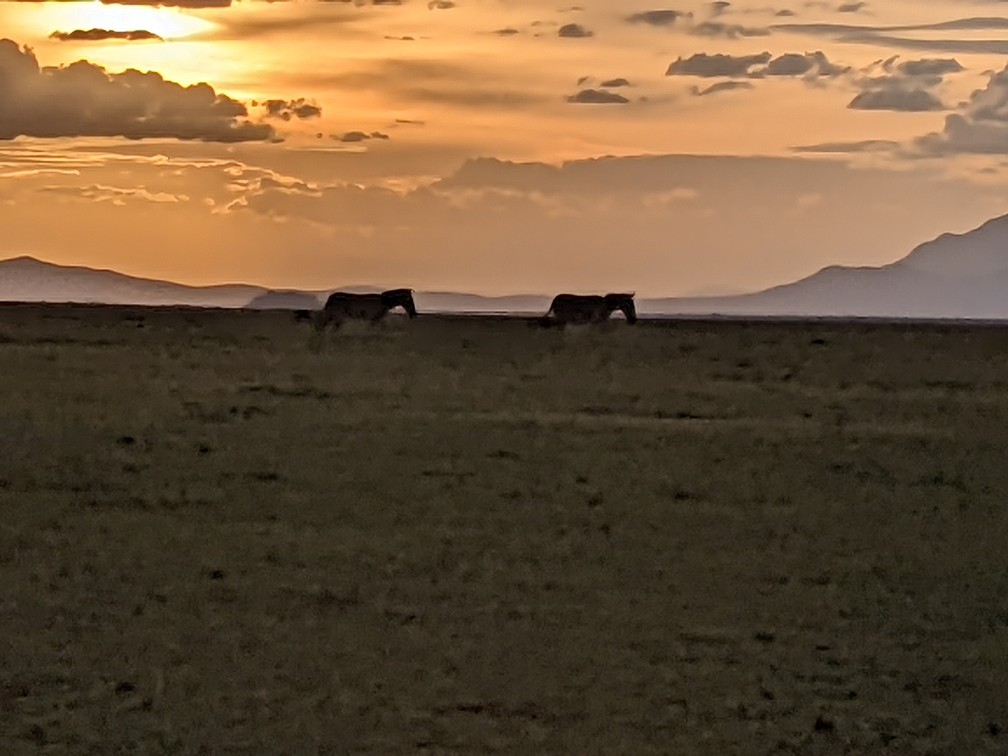
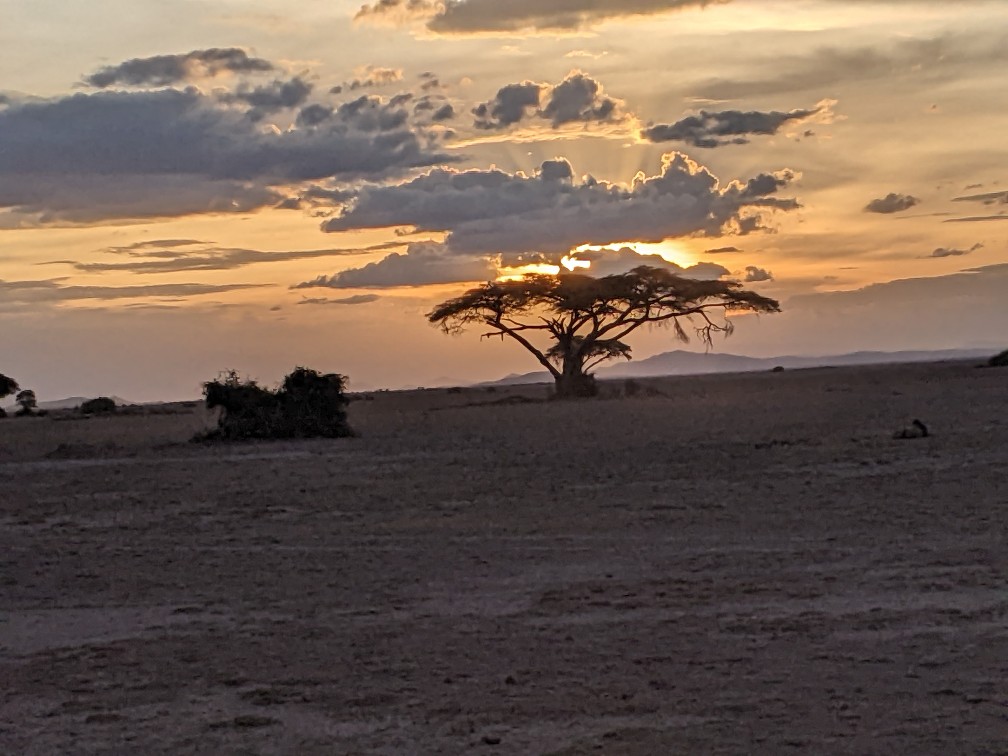
It was a chance for us to really get to know Joseph. We talked about his life, his family and the future. We returned to the camp and had a light dinner.
